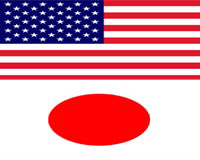| . |  |
. |
New Delhi (AFP) July 21, 2009 The United States struck deals here Monday to pave the way for billions of dollars in exports of civilian nuclear reactors and military hardware to India, US Secretary of State Hillary Clinton said. At a news conference with her Indian counterpart S.M. Krishna, Clinton also pledged to deepen US efforts with India to fight global climate change, check the cross-border spread of nuclear weapons and boost international trade. "We believe cooperation between our two countries will be a driver of progress in the 21st century," Clinton said during a five-day visit in which she hailed India's emergence as a significant player on the world stage. The chief US diplomat said she had reassured her Indian hosts that President Barack Obama would not only maintain, but deepen a "strategic partnership" launched under his predecessor George W. Bush. Clinton said the new administration was first of all committed to a landmark but controversial agreement on civil nuclear cooperation sealed last year under Bush. Both the Obama and Bush administrations argued the agreement carries appropriate safeguards even though India, which has nuclear weapons, has refused to sign the nuclear non-proliferation treaty. Clinton added that Prime Minister Manmohan Singh, in line with that agreement, told her Monday that his new government had approved sites for the construction of two multi-billion-dollar US nuclear reactors. State Department officials said the parks are in the states of Gujarat and Andhra Pradesh. The sites will not only advance the civil nuclear aims, but also "facilitate billions of dollars in US reactor exports and create jobs in both countries as well as generate much needed energy for the Indian people," Clinton said. Clinton and Krishna also announced that the two sides had agreed an "end-use monitoring" arrangement that would provide safeguards for the sale of sophisticated US weaponry to India. A US official said the arrangement was for a provision to be written into future defence contracts, guaranteeing sensitive equipment will be used for its intended purpose and not transferred to a third party. It will be welcomed by Lockheed Martin Corp. and Boeing Co., which are both competing with Russian, French and Swedish companies for a massive 12-billion-dollar tender to provide 126 fighter jets to the Indian Air Force. The issue of climate change, and especially the burden that should be borne by developed and developing countries in reducing carbon emissions, proved a sensitive subject. In talks with Clinton on Sunday, Environment Minister Jairam Ramesh hit out at the pressure placed on emerging nations to accept legally binding reduction targets, and insisted that India was "simply in no position" to do so. Clinton was accompanied by her special climate envoy Todd Stern, who has been tasked with finding a common approach with India before a December summit in Copenhagen aimed at securing a new international agreement on climate change to replace the Kyoto Protocol, which expires in 2012. India -- like fellow developing heavyweight China -- has refused to commit to emission cuts in the new treaty until developed nations, particularly the United States, present sufficient targets of their own. "We believe we can work through our differences," Clinton said at Monday's briefing. She was scheduled to leave for Thailand on Tuesday for bilateral talks in the capital Bangkok before heading to an annual security meeting of the Association of Southeast Asian Nations. Her visit also saw Prime Minister Singh accept an invitation to make an official US visit in November. Share This Article With Planet Earth
Related Links Learn about nuclear weapons doctrine and defense at SpaceWar.com Learn about missile defense at SpaceWar.com All about missiles at SpaceWar.com Learn about the Superpowers of the 21st Century at SpaceWar.com
 US, Japan agree to set up official talks on nuclear deterrence
US, Japan agree to set up official talks on nuclear deterrenceTokyo (AFP) July 18, 2009 The United States on Saturday agreed with Japan to set up an official talks on ways to boost the nuclear deterrence it provides to protect Tokyo as tensions continue with North Korea, a senior official said. The US delegation -- led by Kurt Campbell, assistant secretary of state for East Asian and Pacific affairs, and Wallace Gregson, assistant secretary of defence -- discussed with their ... read more |
|
| The content herein, unless otherwise known to be public domain, are Copyright 1995-2009 - SpaceDaily. AFP and UPI Wire Stories are copyright Agence France-Presse and United Press International. ESA Portal Reports are copyright European Space Agency. All NASA sourced material is public domain. Additional copyrights may apply in whole or part to other bona fide parties. Advertising does not imply endorsement,agreement or approval of any opinions, statements or information provided by SpaceDaily on any Web page published or hosted by SpaceDaily. Privacy Statement |